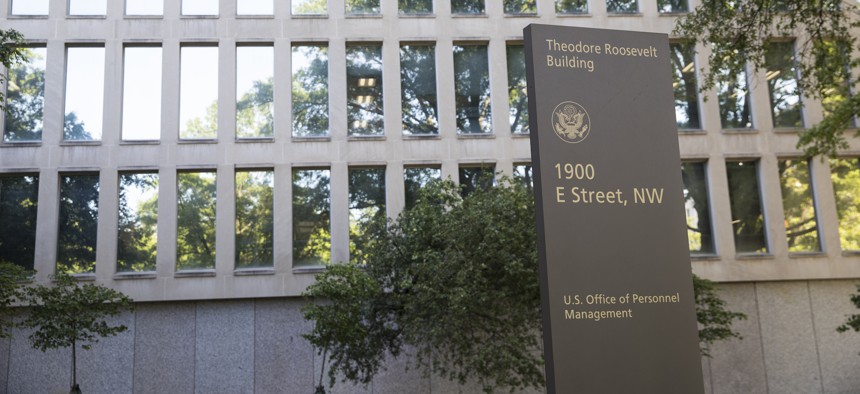OPM authorizes hiring flexibilities for AI

Sarah Silbiger for The Washington Post via Getty Images
Government hiring tools like direct hire and Schedule A appointments are meant to help with an executive order-mandated AI talent surge into the government.
Agencies looking to hire workers for artificial intelligence roles have new tools at their disposal, as the Office of Personnel Management works to flex government hiring authorities to support an AI hiring surge across the government.
Late last week, OPM released a memo authorizing governmentwide direct hire authorities for certain AI-related jobs. OPM is also authorizing the use of temporary excepted service appointments under Schedule A for positions supporting implementation.
Both are meant to fulfill requirements for OPM laid out in the Biden administration’s AI executive order issued in October. The government's ability to hire AI experts and train its existing workforce to support agencies’ AI plans will be imperative, experts say.
Direct hire is an authority meant to help the government fill critically needed open seats or hire workers in competitive markets more quickly by waiving certain government requirements like veterans’ preference, according to OPM.
The new memo authorizes its immediate use for IT specialists, computer scientists and engineers working on AI, as well as management and program analysts at the GS-9 through GS-13 levels. The direct hire authority will be in place through 2028 or until OPM ends it, the memo states.
Schedule A appointments are also intended to speed up federal hiring, though OPM authorized its use only to temporarily fill positions supporting AI implementation — not technical AI positions — for up to 2 years. That includes jobs “needed to assess AI capacity, conduct workforce studies, onboard AI technical staff and meet agency-specific directives,” the memo states. That authority is also set to last through 2028.
OPM isn’t done yet with its to-do list provided in the executive order, though — the White House also tasked the agency with work on a pooled hiring action across agencies; guidance on pay flexibilities or incentive pay programs for AI talent; and guidance on skills-based hiring for AI, data and tech talent.
The agency has also garnered some criticism for its implementation of existing requirements for AI talent from the AI in Government Act, passed in 2020.
That law required OPM to estimate the number of AI-related positions in the government, prepare forecasts based on that data and establish a new occupational series for AI — or update an existing one.
A recent Government Accountability Office report found that OPM had “taken initial steps to address the requirement for updating the occupational series,” like identifying core competencies and skills for AI positions, “but it remains partially unimplemented.”
“OPM study findings confirmed that AI work is performed in various occupational series in the federal government and specializations,” the agency said in a response included in the report. “OPM determined creating one occupational series or multiple AI series was not conducive to individual agency needs and missions.”



